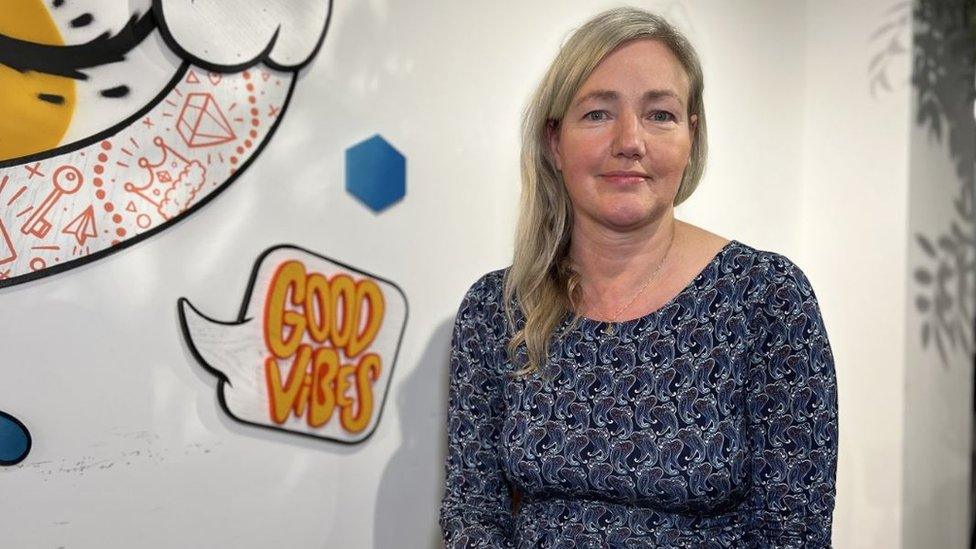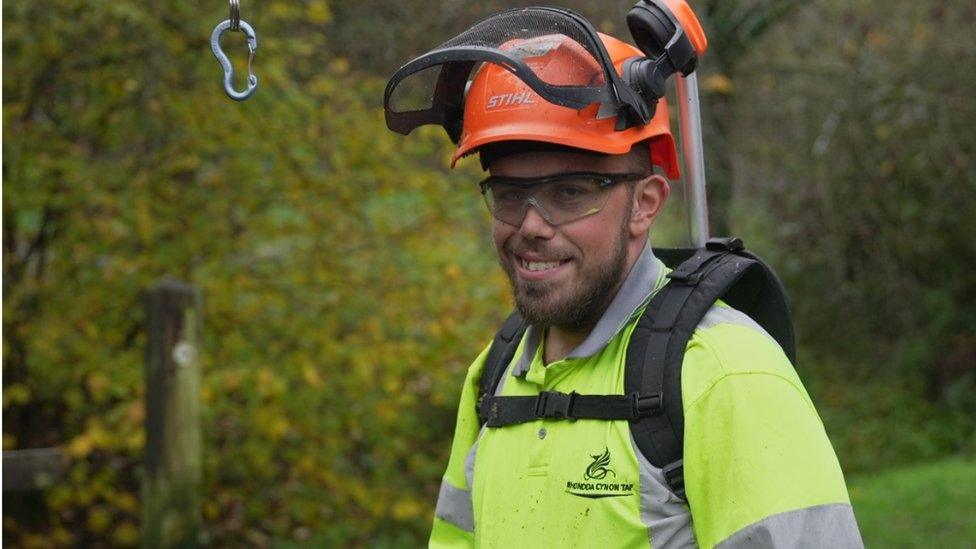Autistic people face 'barriers' in job interviews
- Published

James Montgomery said he has had "mixed results" when disclosing his autism diagnosis to potential employers
Some people who are neurodivergent in Jersey believe disclosing their conditions have stopped them from getting jobs.
James Montgomery, who is autistic, said telling interviewers about his condition has been a barrier.
Jersey Employment Trust said ambiguous interview questions and application forms can keep people with conditions like autism and ADHD out of work.
It follows a report in the UK which found similar problems.
Mr Montgomery said small changes to application and interview processes coul make a big difference.
"The question for me is always 'do I talk about being autistic or not?'," he said.
"And I've found in the past that if I don't talk about it - I tend to fly through the job recruitment process but then I just as quickly leave that because I've not told them about my needs and I'm overwhelmed by the situation."
He added he has had "mixed results" when disclosing he autistic diagnosis to potential employers.
"Sometimes they want to find out more but I've also had some interviews where it did prevent me from getting the job", he said.

Emma Burns, from the Jersey Employment Trust, thinks employers should 'move away from the sort of archaic view'
A report, external from Conservative MP and former Lord Chancellor Sir Robert Buckland listed 19 recommendations around how businesses and government could help neurodiverse people seeking employment.
These included offering career-progression training focused on autistic staff and ensuring careers advisers can give appropriate advice to neurodiverse jobseekers.
Figures published by the government, external in October 2023 said while 53.6% of disabled people are in work, only 30% of autistic people were employed.
Jersey Employment Trust, who helps people with disabilities find work, has urged employers to consider a "more informal approach" for people with neurodiverse conditions.
Senior employment co-ordinator Emma Burns said: "One part of my job is to try to get employers to be more inclusive and to help them with making reasonable adjustments.
"Employers are sometimes shocked, though and small things can make a really big difference for people with neuro-diverse conditions.
"I think it would be really good to move away from the sort of archaic view, where you test people and look at a more informal approach.
"You'll then get a sense of what that person is able to achieve and to be able to bring to your company."
'Expertise will help'
One company Jersey Employment Trust (JET) has worked with is Crestbridge, where Mr Montgomery now works.
The firm's chief people officer Mike Edward said they want to "make sure that everyone's included".
He said: "You know there's more than one way to look at any problem and having a more diverse workforce helps with that.
"We don't have the answers as we started this work two years ago and we're making mistakes, but we're trying and working with outside organisations like JET and Autism Jersey that do have the expertise will help."
Jersey's Discrimination Law means employers cannot discriminate against someone when deciding who to offer paid or voluntary work to.
The government said: "The Back to Work (BTW) team have a long-standing relationship with the Jersey Employment Trust (JET), which provides employment support and pre-employment skills development for people with a disability and/or a long-term health condition.
"Depending on their needs, BTW and JET support customers through face-to-face meetings with an experienced Employment Advisor, and offer a range of training opportunities including CV workshops, interview and IT skills.
"This is also something that will be considered in the neurodiversity strategy, which is currently being developed by Health and Community Services & Autism Jersey."

Follow BBC Jersey on X (formerly Twitter), external and Facebook, external. Send your story ideas to channel.islands@bbc.co.uk, external.
Related topics
- Published28 February 2024

- Published3 October 2023

- Published14 November 2023
